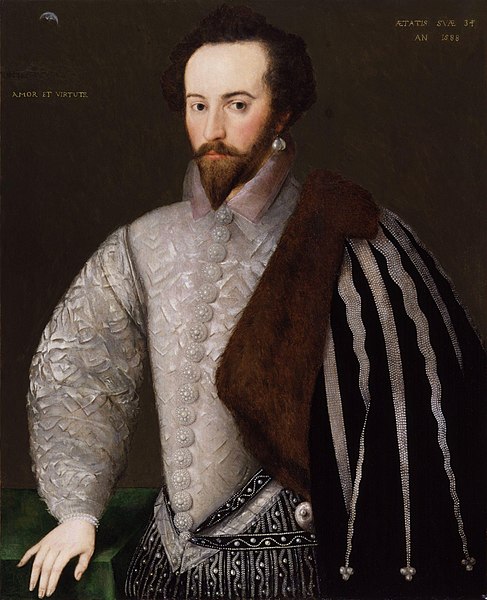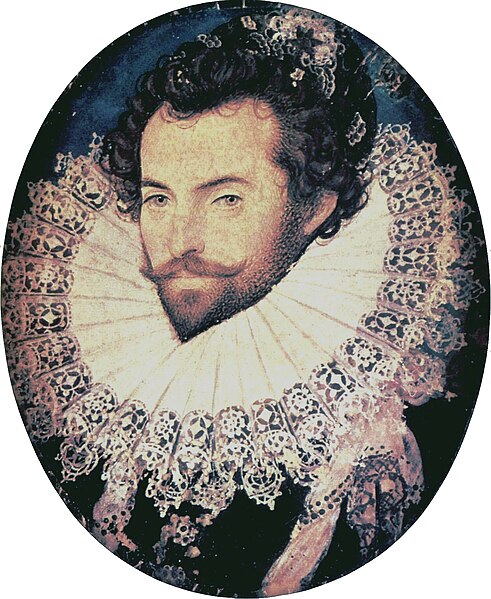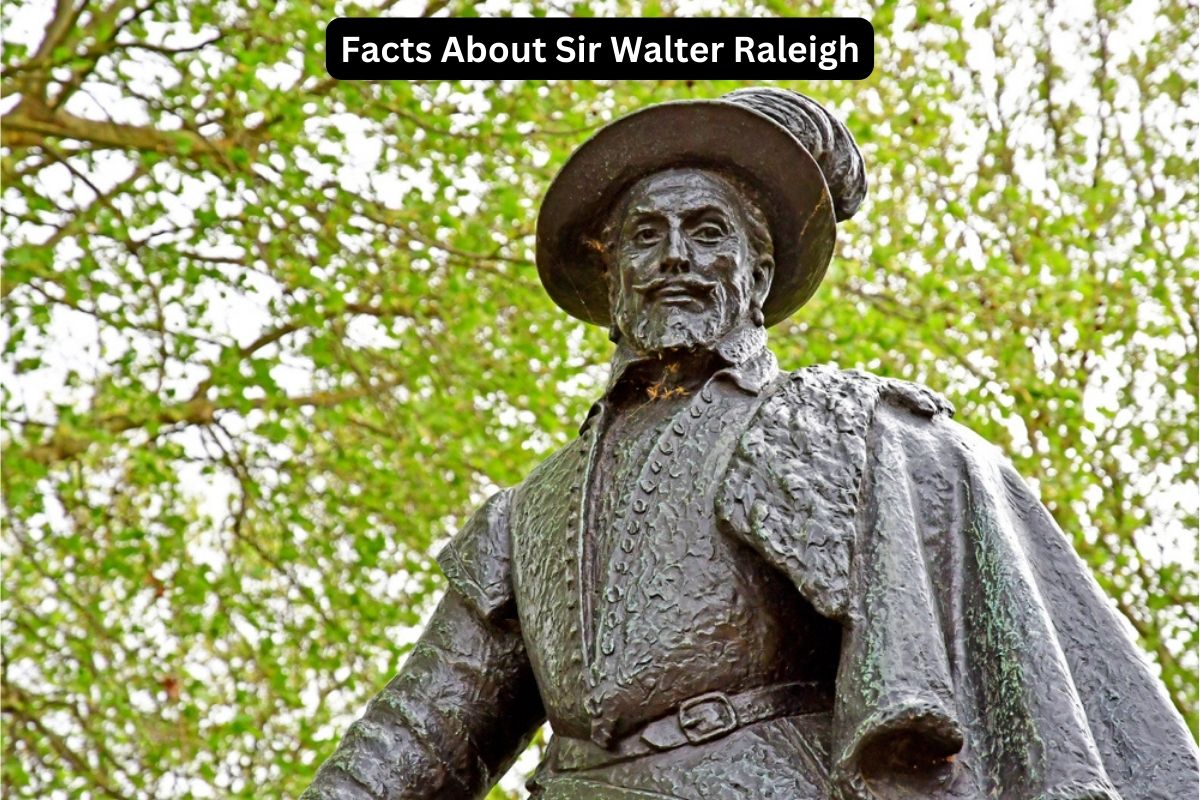Sir Walter Raleigh (c. 1554 – 1618) was an English explorer, poet, courtier, and soldier during the Elizabethan era. He was born into a prominent gentry family in Devon, England, and received an education at Oxford University.
Raleigh is known for introducing tobacco to England and popularizing smoking. He sponsored expeditions to the New World, including the ill-fated Roanoke Colony. Raleigh was a favorite of Queen Elizabeth I and held various court positions. He was also a poet, known for works like “The Nymph’s Reply to the Shepherd.”
Raleigh’s life took a dramatic turn when he was imprisoned for secretly marrying one of the queen’s ladies-in-waiting. He played a key role in defending England against the Spanish Armada and led an unsuccessful expedition to find El Dorado in South America.
After falling out of favor with King James I, he was arrested, tried for treason, and executed in 1618. Sir Walter Raleigh’s legacy is marked by his contributions to exploration, literature, and his role in English history during a tumultuous period.
Sir Walter Raleigh Facts
1. Born around 1554 in Devon, England
Sir Walter Raleigh was born around 1554, although the exact date of his birth remains uncertain. He was born into a relatively wealthy and influential family in Hayes Barton, Devon, England.
Also Read: Sir Walter Raleigh Timeline
His family’s status in the local gentry provided him with access to education and opportunities that would shape his future.

2. Served as a soldier in France and Ireland
Raleigh’s early adulthood was marked by military service. He joined the Huguenot army in France during the late 1570s, where he gained valuable experience as a soldier and explorer.
His military service helped hone his leadership skills and sense of adventure, which would later come to play in his explorations and ventures.
3. Introduced tobacco to England
One of Raleigh’s notable contributions to English culture was his introduction of tobacco to England. During his travels to the Americas, Raleigh encountered tobacco and observed its use among indigenous peoples.
Also Read: Accomplishments of Sir Walter Raleigh
He is often credited with popularizing the habit of smoking tobacco in England. It is said that he was one of the first individuals to smoke a pipe in England, setting a trend that would grow in popularity over the centuries.
4. Sponsored expeditions to the New World, including Roanoke Colony
Sir Walter Raleigh was a prominent figure in the age of exploration. He sponsored and supported several voyages to the New World, with a particular interest in what is now North America.
One of the most famous expeditions he financed was the Roanoke Colony in what is now North Carolina.
Unfortunately, this colony became known as the “Lost Colony” because all of its inhabitants mysteriously disappeared, leaving behind only the word “CROATOAN” carved on a tree.
5. A favorite courtier of Queen Elizabeth I
His charm, wit, and charisma made him a valuable member of the court, and he was known for his elegant attire and manners. Raleigh’s closeness to the queen allowed him to secure royal patronage for his explorations and endeavors.
6. Knighted in 1585 and held various court positions
Raleigh was a favorite of Queen Elizabeth I and held various positions at her court. He was knighted in 1585 and served as Captain of the Queen’s Guard.

7. Poet, known for “The Nymph’s Reply to the Shepherd”
In addition to his explorations and courtly duties, Raleigh was a poet. He is best known for his poem “The Nymph’s Reply to the Shepherd,” which is a response to Christopher Marlowe’s poem “The Passionate Shepherd to His Love.”
Raleigh’s poetry reflects the literary tastes and conventions of the Elizabethan era and showcases his talent for both exploration and the arts.
8. Imprisoned in the Tower of London for a secret marriage
In 1592, Sir Walter Raleigh found himself in a difficult situation. He secretly married Elizabeth Throckmorton, one of Queen Elizabeth I’s ladies-in-waiting, without obtaining the queen’s permission. This act angered the queen, as it was considered disrespectful for a courtier to marry without royal consent.
As a result, Raleigh was imprisoned in the Tower of London for a time. While in the Tower, he wrote several works, including “The History of the World,” a scholarly book that he began during his confinement.
9. Played a role in defending England against the Spanish Armada
Sir Walter Raleigh played a pivotal role in England’s defense against the Spanish Armada in 1588. He was involved in organizing the English fleet and participated in naval battles against the formidable Spanish Armada.
His military expertise and leadership were instrumental in the English victory over the Spanish, a significant event in English history.
10. Executed in 1618 after falling out of favor with King James I
After the death of Queen Elizabeth I in 1603, Raleigh’s fortunes took a sharp downturn. He fell out of favor with the new king, James I, due to political differences and his involvement in a plot against the king.
In 1603, Raleigh was arrested, tried, and convicted of treason. He spent over a decade in the Tower of London.
In 1618, he was released with the king’s permission to lead an expedition to search for gold in South America. The expedition failed, and upon his return to England, Raleigh was arrested once again. On October 29, 1618, he was executed by beheading.
